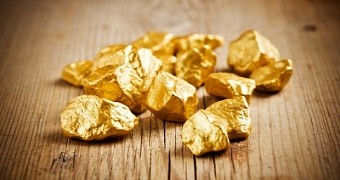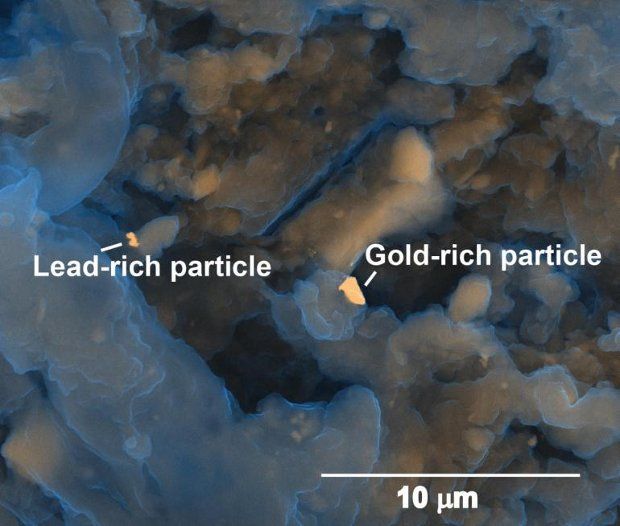A team of scientists speaking at the 249th National Meeting & Exposition of the American Chemical Society in Denver, US, announced plans to try and extract gold, together with other valuable metals, from sewage.
That's right, researchers are actually considering mining poop for gold and whatever other precious metals such as silver, lead, zinc and titanium we so carelessly flush while going about our daily routine.
Poop is a goldmine, no joke
As explained by US Geological Survey researcher Kathleen Smith, there are metals pretty much everywhere in our little world. They're present in detergents, in hair care products, and even in our clothes in the form of nanoparticles designed to prevent bad odors.
Together with whatever waste we humans produce throughout our life, poop included, these metals eventually find themselves forced on a one-way trip down the drain that ends when they reach treatment plants. The same is true about rare elements in electronics and alloys.
Having reached one treatment plant or another, the valuable metals and the rare elements mix with whatever waste accompanied them on their journey. In some cases, the concentrations of valuable metals and rare elements found in waste is similar to the one in actual mineral deposits.
According to a recent study in the journal Environmental Science & Technology, the waste produced by one million Americans throughout the course of just one year is likely to contain about $13 million (nearly €12 million) worth of gold and other precious metals.
Seeing how there are about 320 million people living in the US these days, what this means is that, in a really weird way, the waste that they send to treatment plants annually is quite literally a goldmine. A goldmine worth a whole lot of money, to be more precise.
Mining poop actually makes sense
Let's be honest here, this whole idea about snooping around in poop hoping to find valuable elements and rare elements is a tad disturbing. The thing is that, as bad and as gross as it sounds, it actually makes sense, as least from a scientific viewpoint.
First off, there is no denying that recovering precious metals and rare elements from waste at treatment plants would reduce the need for mining and help put a leash on the release of potentially harmful compounds into the environment.
At the same time, the move would benefit companies that are in the business of making cell phones, computers and other electronics, and that need rare elements to keep up and running, scientist Kathleen Smith and fellow researchers argue.
“We’re interested in collecting valuable metals that could be sold, including some of the more technologically important metals, such as vanadium and copper that are in cell phones, computers and alloys,” the US Geological Survey specialist said in an interview, as cited by EurekAlert.
For the time being, scientists are not quite sure how to go about recovering valuable metals and rare elements from the waste we humans cannot help but produce. Still, they are working hard on finding a way to do so effectively and hope to soon solve this conundrum.

 14 DAY TRIAL //
14 DAY TRIAL // 

